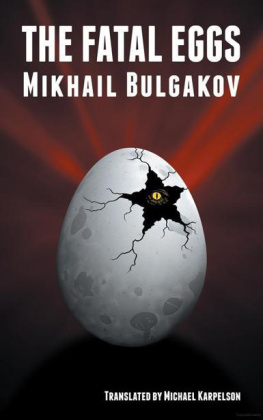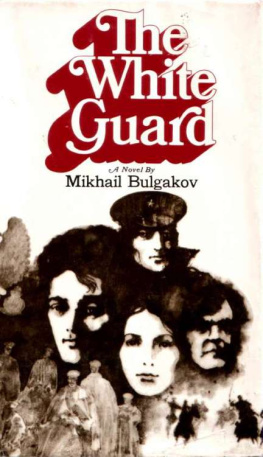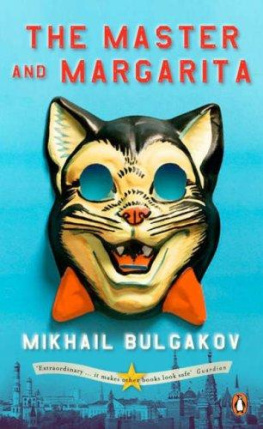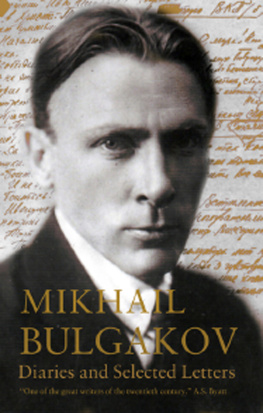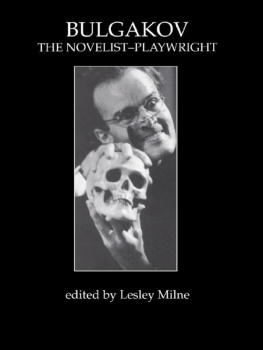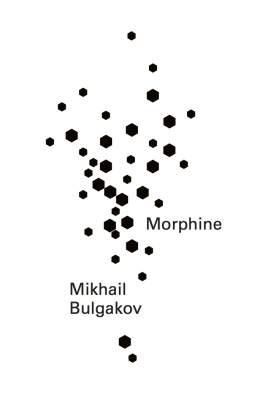Mikhail Bulgakov - The Fatal Eggs
Here you can read online Mikhail Bulgakov - The Fatal Eggs full text of the book (entire story) in english for free. Download pdf and epub, get meaning, cover and reviews about this ebook. year: 2010, publisher: Translit Publishing, genre: Detective and thriller. Description of the work, (preface) as well as reviews are available. Best literature library LitArk.com created for fans of good reading and offers a wide selection of genres:
Romance novel
Science fiction
Adventure
Detective
Science
History
Home and family
Prose
Art
Politics
Computer
Non-fiction
Religion
Business
Children
Humor
Choose a favorite category and find really read worthwhile books. Enjoy immersion in the world of imagination, feel the emotions of the characters or learn something new for yourself, make an fascinating discovery.
- Book:The Fatal Eggs
- Author:
- Publisher:Translit Publishing
- Genre:
- Year:2010
- Rating:3 / 5
- Favourites:Add to favourites
- Your mark:
- 60
- 1
- 2
- 3
- 4
- 5
The Fatal Eggs: summary, description and annotation
We offer to read an annotation, description, summary or preface (depends on what the author of the book "The Fatal Eggs" wrote himself). If you haven't found the necessary information about the book — write in the comments, we will try to find it.
The Fatal Eggs — read online for free the complete book (whole text) full work
Below is the text of the book, divided by pages. System saving the place of the last page read, allows you to conveniently read the book "The Fatal Eggs" online for free, without having to search again every time where you left off. Put a bookmark, and you can go to the page where you finished reading at any time.
Font size:
Interval:
Bookmark:
The Fatal Eggs
Mikhail Bulgakov
1924
CONTENTS
MikhailBulgakov (1891-1940) was born inKievinto the family of a teacher at a religious academy, endured the hardships ofwars and revolutions, starved, became a playwright for the country's finesttheatre, knew fame, persecution, public ovations and forced muteness. His bestworks, including the famous The Master and Margarita, were not published untilafter his death. His dramas were struck off the repertoire-The Days of theTurbins at the Moscow Arts Theatre and his plays about Moliere and Pushkin.
Duringhis lifetime, not a single major anthology of his short stories was everpublished
Bulgakov's works have since been recognised asclassics; his books have been published in all the languages of the civilisedworld, studies of him have reached the four-figure mark and the number is stillrising; editions of his books in the USSR have run into millions. He has wonthe highest praise from Gabriel Garcia Marquez of Columbia and Kendzaburo Oe ofJapan.
Kirghizwriter Chinghiz Aitmatov looks on Bulgakov as his teacher. Mikhail Bulgakov'sbooks have at last come into their own with their wild fantasy and theirprophetic ideas about man and humanity. Our collection includes one of his mostvivid stories, "The Fatal Eggs".
On the evening of 16 April, 1928, the ZoologyProfessor of the Fourth State University and Director of the Moscow ZoologicalInstitute, Persikov, went into his laboratory at the Zoological Institute inHerzen Street. The Professor switched on the frosted ceiling light and lookedaround him.
This ill-fated evening must be regarded asmarking the beginning of the appalling catastrophe, just as Professor VladimirIpatievich Persikov must be seen as the prime cause of the said catastrophe.
He was fifty-eight years old. With a splendid bald head, like a pestle, and tufts of yellowishhair sticking out at the sides. His face was clean-shaven, with aslightly protruding lower lip which gave it a slightly cantankerous expression.Tall and round-shouldered, he had small bright eyes and tiny old-fashionedspectacles in silver frames on a red nose. He spoke in a grating, high,croaking voice and one of his many idiosyncrasies was to crook the index fingerof his right hand and screw up his eyes, whenever he was saying somethingweighty and authoritative. And since he always spoke authoritatively, becausehis knowledge in his field was quite phenomenal, the crooked finger wasfrequently pointed at those with whom the Professor was conversing. Outside hisfield, that is, zoology, embriology, anatomy, botany and geography, however,Professor Persikov said almost nothing at all.
Professor Persikov did not read the newspapersor go to the theatre.
His wife had run away with a tenorfrom the Zimin opera in 1913, leaving him a note which read as follows:
"Your frogs make me shudder withintolerable loathing. I shall be unhappy all my life because of them."
The Professor did not marry again and had nochildren. He was short-tempered, but did not bear grudges, liked cloudberry teaand lived in Prechistenka Street in a flat with five rooms, one of which wasoccupied by the old housekeeper, Maria Stepanovna, who looked after theProfessor like a nanny.
In 1919 three of the Professor's five roomswere taken away. Whereupon he announced to Maria Stepanovna:
"If they don't stop this outrageousbehaviour, I shall leave the country, Maria Stepanovna."
Had the Professor carried out this plan, hewould have experienced no difficulty in obtaining a place in the zoologydepartment of any university in the world, for he was a really first-classscholar, and in the particular field which deals with amphibians had no equal,with the exception of professors William Weckle in Cambridge and GiacomoBartolomeo Beccari in Rome. The Professor could read four languages, as Mvellas Russian, and spoke French and German like a native. Persikov did not carryout his intention of going abroad, and 1920 was even worse than 1919. All sortsof things happened, one after the other. Bolshaya Nikitskaya was renamed HerzenStreet. Then the clock on the wall of the corner building in Herzen Street andMokhovaya stopped at a quarter past eleven and, finally, unable to endure theperturbations of this remarkable year, eight magnificent specimens oftree-frogs died in the Institute's terrariums, followed by fifteen ordinarytoads and an exceptional specimen of the Surinam toad.
Immediately after the demise of the toadswhich devastated that first order of amphibians rightly called tailless, oldVlas, the Institute's caretaker of many years' standing, who did not belong toany order of amphibians, also passed on to a better world. The cause of hisdeath, incidentally, was the same as that of the unfortunate amphibians, andPersikov diagnosed it at once:
"Undernourishment!"
The scientist was perfectly right. Vlas shouldhave been fed with flour and the toads with flour weevils, but thedisappearance of the former determined that of the latter likewise, andPersikov tried to shift the twenty surviving specimens of tree-frogs onto adiet of cockroaches, but then the cockroaches disappeared too, therebydemonstrating their hostile attitude to war communism. Consequently, these lastremaining specimens also had to be thrown into the rubbish pits in theInstitute yard.
The effect of these deaths on Persikov, particularly that of the Surinam toad,is quite indescribable. For some reason he blamed them entirely on the People'sCommissar for Education.
Standing in his fur cap and galoshes in thecorridor of the freezing Institute, Persikov said to his assistant Ivanov, anelegant gentleman with a fair pointed beard:
"Hanging's too good for him, PyotrStepanovich! What do they think they're doing! They'll ruin the wholeInstitute! Eh? An exceptionally rare male specimen of Pipa americana, thirteencentimetres long..."
Things went from bad to worse. When Vlas diedthe Institute windows froze so hard that there were icy scrolls on the insideof the panes. The rabbits, foxes, wolves and fish died, as well as every singlegrass-snake.
Persikov brooded silently for days onend, then caught pneumonia, but did not die. When he recovered, he startedcoming to the Institute twice a week and in the round hall, where for somereason it was always five degrees below freezing point irrespective of thetemperature outside, he delivered a cycle of lectures on "The Reptiles ofthe Torrid Zone" in galoshes, a fur cap with ear-flaps and a scarf,breathing out white steam, to an audience of eight. The rest of the time he layunder a rug on the divan in Prechistenka, in a room with books piled up to theceiling, coughing, gazing into the jaws of the fiery stove which MariaStepanov-na stoked with gilt chairs, and remembering the Surinam toad.
But all things come to an end. So it was with'twenty and 'twenty-one, and in 'twenty-two a kind of reverse process began.Firstly, in place of the dear departed Vlas there appeared Pankrat, a young,but most promising zoological caretaker, and the Institute began to be heatedagain a little.
Then in the summer with Pankrat'shelp Persikov caught fourteen common toads. The terrariums came to lifeagain... In 'twenty-three Persikov gave eight lectures a week, three at theInstitute and five at the University, in 'twenty-four thirteen a week, notincluding the ones at workers' schools, and in the spring of 'twenty-fivedistinguished himself by failing no less than seventy-six students, all onamphibians.
"What, you don't know the differencebetween amphibians and reptilia?"
Persikov asked. "That's quite ridiculous,young man. Amphibia have no kidneys. None at all. So there. You should be ashamed of yourself. I expect you'rea Marxist, aren't you?"
Next pageFont size:
Interval:
Bookmark:
Similar books «The Fatal Eggs»
Look at similar books to The Fatal Eggs. We have selected literature similar in name and meaning in the hope of providing readers with more options to find new, interesting, not yet read works.
Discussion, reviews of the book The Fatal Eggs and just readers' own opinions. Leave your comments, write what you think about the work, its meaning or the main characters. Specify what exactly you liked and what you didn't like, and why you think so.

